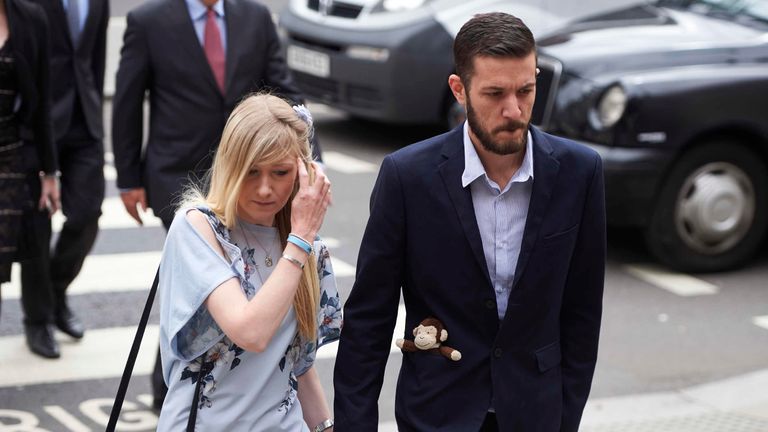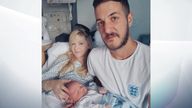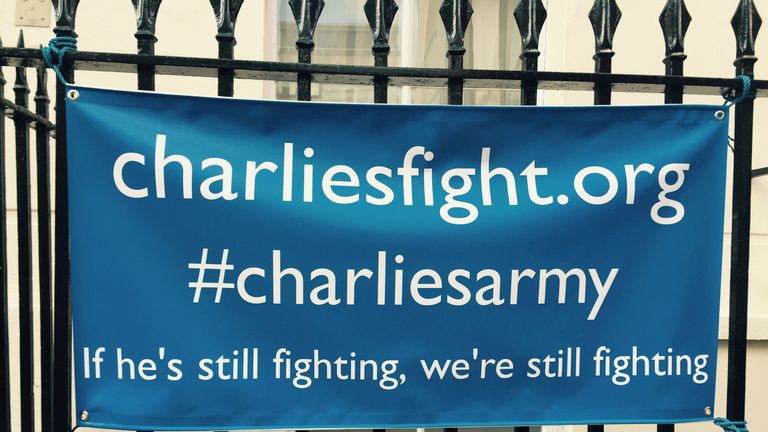What comes next in the case of critically ill baby Charlie Gard?
With experts meeting to discuss Charlie, this might be the breakthrough his parents have been hoping for, says Joshua Rozenberg.
Saturday 15 July 2017 05:54, UK
Connie Yates and Chris Gard have achieved more for their critically ill son in the past week than they have during the past five months of their legal battle with Great Ormond Street Hospital.
A meeting of clinical experts will be held at the hospital early next week, when they will be asked a series of questions about Charlie Gard's condition.
The exact wording has not yet been decided, but they will be questions like: does Charlie have brain damage? Is it irreversible? And so on.
Grant Armstrong, the barrister who is acting, unpaid, for Charlie's parents, has persuaded the High Court that Ms Yates should be allowed to attend the meeting.
There will be an independent chair who will allow her to make comments while ensuring she does not interrupt the experts' discussion.
::
Another success for the parents is that the meeting will be attended by Dr Michio Hirano, professor of neurology at Columbia University Medical Centre in New York.
::
At a hearing on Thursday, he told the court by video link that there was now a better chance than he previously thought when he gave evidence three months earlier that a new therapy could strengthen Charlie's muscles.
At that stage, he could not be identified. Dr Hirano withdrew his request for anonymity when he heard it would be opposed by the Press Association news agency and other reporters.
::
The clinicians' meeting will be recorded and a transcript will be sent to the judge, Mr Justice Francis.
He is planning to hold a further hearing on July 24 and 25, when he will assess the medical evidence and decide whether there has been any change since his last ruling on April 11, when he decided it was in Charlie's best interests not to have nucleoside therapy and for his doctors to provide him with palliative care only.
That decision was
What Charlie's parents are now hoping is that the evidence given by Dr Hirano, in discussion with the other experts, will be enough to persuade the judge that it is now in Charlie's best interests to have the therapy being offered.
That treatment would presumably mean transferring Charlie to a hospital in New York. Again, the court would have to consider whether this would be in his best interests.
If everything goes according to plan, Mr Justice Francis hopes to give his ruling at the end of the hearing on 25 July.





